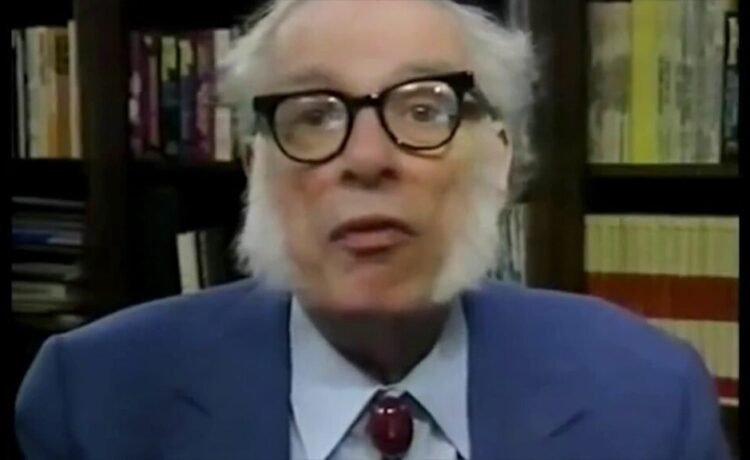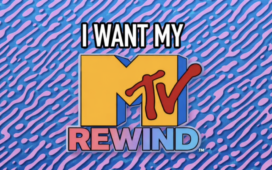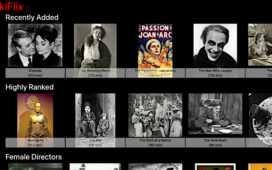Artificial intelligence may be one of the major topics of our historical moment, but it can be surprisingly tricky to define. In the more than 30-year-old interview clip above, Isaac Asimov describes artificial intelligence as “a phrase that we use for any device that does things which, in the past, we have associated only with human intelligence.” At one time, not so very long before, “only human beings could alphabetize cards”; in the machines that could even then do it in a fraction of a second, “you’ve got an example of artificial intelligence.” Not that humans were ever especially good at card alphabetization, nor at arithmetic: “the cheapest computer in the world can multiply and divide more accurately than we can.”
You could see artificial intelligence as a kind of frontier, then, which moves forward as computerized machines take over the tasks humans previously had to do themselves. “Every industry, the government itself, tax-collecting agencies, airplanes: everything depends on computers. We have personal computers in the home, and they are constantly getting better, cheaper, more versatile, capable of doing more things, so that we can look into the future, when, for the first time, humanity in general will be freed from all kinds of work that’s really an insult to the human brain.” Such work “requires no great thought, no great creativity. Leave all that to the computer, and we can leave to ourselves those things that computers can’t do.”
This interview was shot for Isaac Asimov’s Visions of the Future, a television documentary that aired in 1992, the last year of its subject’s life. One wonders what Asimov would make of the world of 2025, and whether he’d still see artificial and natural intelligence as complementary, rather than in competition. “They work together,” he argues. “Each supplies the lack of the other. And in cooperation, they can advance far more rapidly than either could by itself.” But as a science-fiction novelist, he could hardly fail to acknowledge that technological progress doesn’t come easy: “Will there be difficulties? Undoubtedly. Will there be things that we won’t like? Undoubtedly. But we’ve got to think about it now, so as to be prepared for possible unpleasantness and try to guard against it before it’s too late.”
These are fair points, though it’s what comes next that most stands out to the twenty-first-century mind. “It’s like in the old days, when the automobile was invented,” Asimov says. “It would’ve been so much better if we had built our cities with the automobile in mind, instead of building cities for a pre-automobile age and finding we can hardly find any place to put the automobiles or allow them to drive.” Yet the cities we most enjoy today aren’t the new metropolises built or greatly expanded in the car-oriented decades after the Second World War, but precisely those old ones whose streets were built to the seemingly obsolete scale of human beings on foot. Perhaps, upon reflection, we’d do best by future generations to keep as many elements of the pre-AI world around as we possibly can.
Related Content:
Based in Seoul, Colin Marshall writes and broadcasts on cities, language, and culture. His projects include the Substack newsletter Books on Cities and the book The Stateless City: a Walk through 21st-Century Los Angeles. Follow him on the social network formerly known as Twitter at @colinmarshall.















